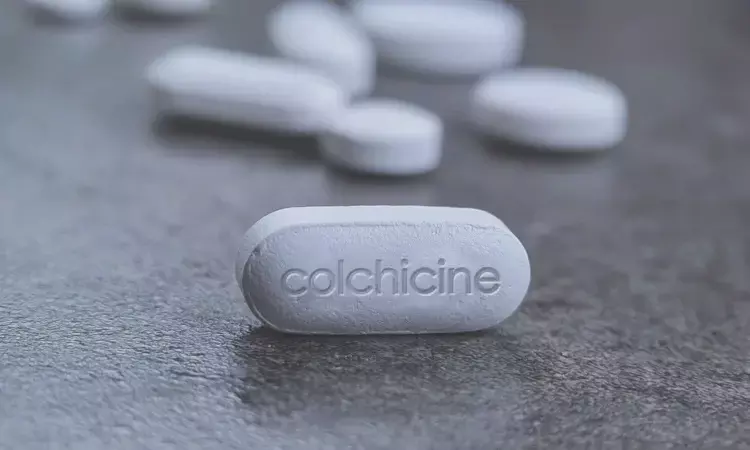- Home
- Medical news & Guidelines
- Anesthesiology
- Cardiology and CTVS
- Critical Care
- Dentistry
- Dermatology
- Diabetes and Endocrinology
- ENT
- Gastroenterology
- Medicine
- Nephrology
- Neurology
- Obstretics-Gynaecology
- Oncology
- Ophthalmology
- Orthopaedics
- Pediatrics-Neonatology
- Psychiatry
- Pulmonology
- Radiology
- Surgery
- Urology
- Laboratory Medicine
- Diet
- Nursing
- Paramedical
- Physiotherapy
- Health news
- Fact Check
- Bone Health Fact Check
- Brain Health Fact Check
- Cancer Related Fact Check
- Child Care Fact Check
- Dental and oral health fact check
- Diabetes and metabolic health fact check
- Diet and Nutrition Fact Check
- Eye and ENT Care Fact Check
- Fitness fact check
- Gut health fact check
- Heart health fact check
- Kidney health fact check
- Medical education fact check
- Men's health fact check
- Respiratory fact check
- Skin and hair care fact check
- Vaccine and Immunization fact check
- Women's health fact check
- AYUSH
- State News
- Andaman and Nicobar Islands
- Andhra Pradesh
- Arunachal Pradesh
- Assam
- Bihar
- Chandigarh
- Chattisgarh
- Dadra and Nagar Haveli
- Daman and Diu
- Delhi
- Goa
- Gujarat
- Haryana
- Himachal Pradesh
- Jammu & Kashmir
- Jharkhand
- Karnataka
- Kerala
- Ladakh
- Lakshadweep
- Madhya Pradesh
- Maharashtra
- Manipur
- Meghalaya
- Mizoram
- Nagaland
- Odisha
- Puducherry
- Punjab
- Rajasthan
- Sikkim
- Tamil Nadu
- Telangana
- Tripura
- Uttar Pradesh
- Uttrakhand
- West Bengal
- Medical Education
- Industry
Colchicine cheap and low-risk medication to reduce MACE in patients undergoing PCI: BMJ

UK: A recent study showed that colchicine significantly reduces MACE risk in coronary artery disease (CAD) patients who underwent percutaneous coronary intervention (PCI). Colchicine reduced the risk of repeat vessel revascularization, stent thrombosis, and stroke. The study appears in the BMJ journal Open Heart.
PCI is the preferred coronary reperfusion strategy that induces endothelial trauma which may scale an inflammatory response. This may increase the likelihood of further major adverse cardiovascular events (MACE). Colchicine is a cheap and widely used anti-inflammatory that has shown promise in improving cardiovascular outcomes. Considering this, Kah Long Aw, Oxford University Hospitals NHS Trust, Oxford, UK, and colleagues aimed to perform a systematic review and meta-analysis to study the effects of colchicine in patients with symptomatic CAD who have undergone PCI.
For this purpose, the researchers systematically reviewed and meta-analysed 7 randomised controlled trials including a total of 6660 patients (3347 in colchicine group and 3313 in the control group; mean age=60.9±10). Six studies included participants who had a ≤13.5-day history of acute coronary syndrome (ACS). One study was that which included patients having both ACS and chronic coronary syndrome. The studies were followed training from 3 days to 22.6 months.
The main findings of the study were as follows:
- The use of colchicine in patients who underwent PCI significantly reduced MACE outcomes (risk ratio 0.73) with minimal heterogeneity across the analysis.
- These results were driven mainly by the reduction in repeat vessel revascularisation, stroke and stent thrombosis.
- The number needed to treat to prevent one occurrence of MACE was 41.
"Colchicine is a cheap and relatively low risk medication that may benefit (27% risk reduction, number needed to treat=41) patients undergoing PCI in reducing major cardiovascular events and disease morbidity," wrote the authors. "However, there is a need for conducting more studies to investigate the effects of colchicine in a periprocedural versus secondary prevention setting."
Reference:
Aw KL, Koh A, Lee HL, et alColchicine for symptomatic coronary artery disease after percutaneous coronary interventionOpen Heart 2022;9:e001887. doi: 10.1136/openhrt-2021-001887
Dr Kamal Kant Kohli-MBBS, DTCD- a chest specialist with more than 30 years of practice and a flair for writing clinical articles, Dr Kamal Kant Kohli joined Medical Dialogues as a Chief Editor of Medical News. Besides writing articles, as an editor, he proofreads and verifies all the medical content published on Medical Dialogues including those coming from journals, studies,medical conferences,guidelines etc. Email: drkohli@medicaldialogues.in. Contact no. 011-43720751


